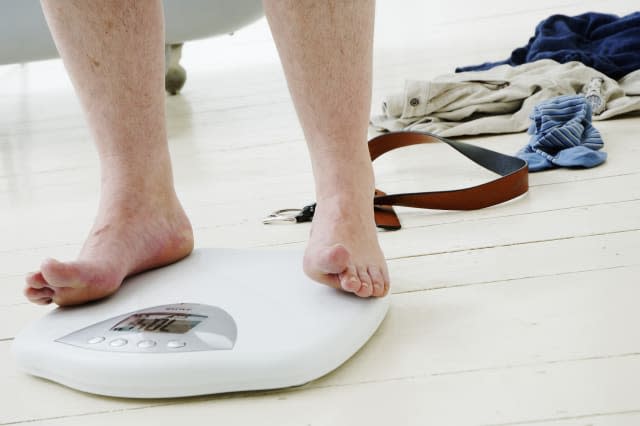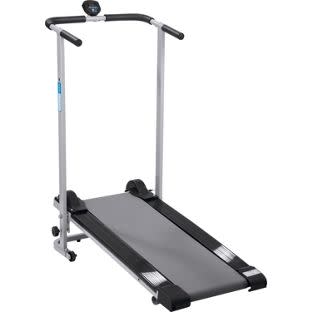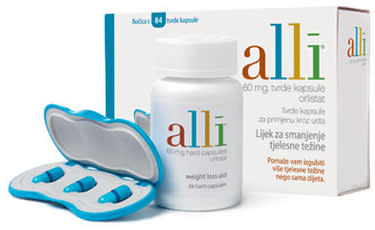7 diet myths that are keeping you fat


You follow the advice of the diet "experts" but you still don't lose weight. Sound familiar? If so, it could be time to take a closer look at the dieting myths that are keeping you fat...
Myth: Eating a big breakfast will help you lose weight
You know that skipping breakfast is a bad idea (you're likely to consume more calories later in the day) but eating a big breakfast isn't the answer either.
The theory goes that eating a huge meal first thing will stop you snacking later. Not so, say researchers in Germany. They tracked the food intake of 280 obese and 100 normal-weight volunteers and found that big-breakfast eaters didn't eat less later on – in fact, they consumed an extra 400 calories overall.
The answer? Eat breakfast, just make it normal-sized (300 calories) and go for foods that release their energy slowly – like porridge or a boiled egg with a slice of wholemeal toast.
See also: Fast ways to a flat stomach
Myth: Grazing throughout the day increases your metabolism
There is no evidence to suggest that eating little and often will significantly increase your metabolism. The truth is that instead of helping to control appetite, grazing leads to weight gain for many of us. The problem isn't just the calorie-dense and high-fat foods we're snacking on, scientists believe that eating every few hours interferes with the body's ability to burn fat.
When we consume food, our body releases insulin - a hormone that helps carry sugar into the cells to burn as energy. This sugar energy will keep us going for around three hours, after which our bodies will start using energy from our fat stores. If you wait four to five hours between eating, your body gets to burn more fat. Grazing also puts stress on our organs, causing blood-sugar levels to stay elevated throughout the day. Aim to eat three meals a day with a couple of healthy (protein and veggie) snacks.
Myth: You can eat whatever you like as long as you exercise
Keeping fit has many health benefits beyond weight loss, but when it comes to shedding the pounds, studies show that cutting calories is more effective than exercise.
Yes, exercising increases metabolism and so burns a few more calories, but it also increases appetite. A 30-minute run at a moderate 10-minute-per-mile pace burns just under 300 calories – but an extra snack and a sports drink can easily see that go back on. If you've been hitting the gym and not losing weight, go back to basics and keep a food diary. Exercising should be part of your weight-loss plan, but don't forget to monitor your calorie intake.
Myth: You can eat as much as you like, as long as it's healthy
Healthy foods are good for you, but you still need to watch your portion sizes. Nuts, avocado and dried fruits are calorie-dense and will cause you to pack on the pounds if you eat too much.
Likewise, simply switching to a vegan diet won't necessarily see you lose weight. While filling up on fruit, vegetables and pulses can help, you still need to watch how much whole-wheat bread and pasta you're eating. Again, overall calorie intake matters.
Myth: You have to give up your favourite foods
Losing weight doesn't have to mean depriving yourself of your favourite foods. Having a little of what you fancy can actually help to control your cravings – just make sure you limit yourself to one fun-size Mars bar!
Don't worry if you can't stop thinking about a particular food. A 2010 study in the journal Science revealed that people who repeatedly visualized eating certain foods (such as chocolate) tended to not eat as much afterwards. Researchers say the key is repetition – repeatedly imagining eating a food leads to habituation, where just thinking about eating it is enough to satisfy cravings.
Myth: Low-fat or fat-free food will have significantly fewer calories
Don't be fooled into packing your shopping trolley with "low-fat" and "healthy option" meals. Just because a food is labelled low-fat doesn't necessarily mean it's low in calories – often the fat is replaced with protein, starch and sugar. Read the back of diet yoghurts and processed ready meals carefully – you need to check the amount of sugars and calories, as well as fat.
Myth: Eating late in the evening will cause you to gain weight.
How much weight you gain or lose is dependent on the total number of calories you consume – not the time of day you consume them. While eating late at night is a bad idea (as it can cause digestive problems) the calories you eat in the evening won't make you gain more weight than the ones you consume in the morning.
Three products that may help you to lose weight:

Pro Fitness Non-Motorised Treadmill, £89.99

Alli hard capsules - 84 x 60mg, £34.95

Salter Max Body Analyser Scale, £39.99
Related videos:




